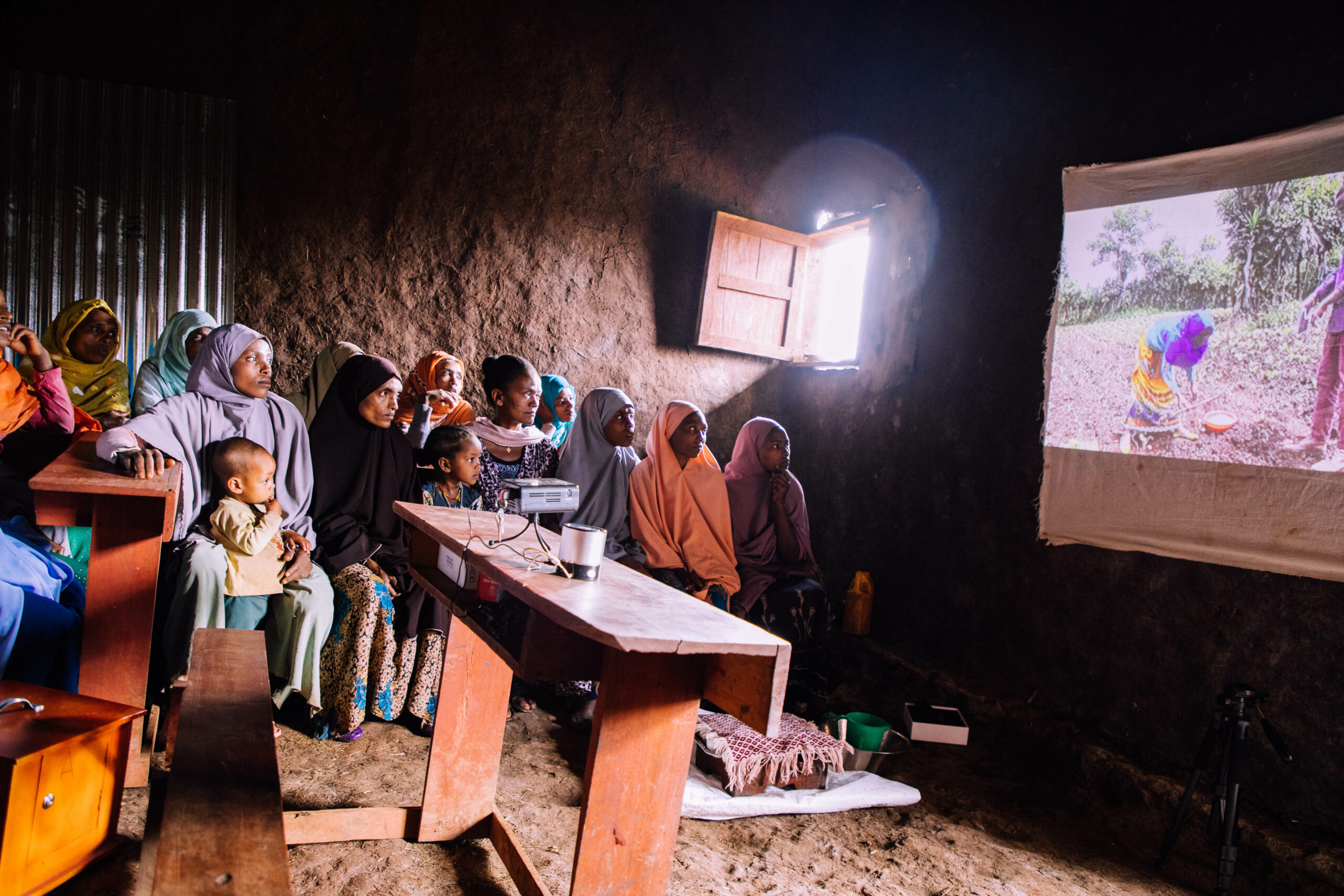To learn more about Digital Green’s AI-powered platform and how it impacts small-scale farmers in India, Ethiopia, Kenya, Nigeria and Nepal, we encourage you to sign up for our newsletter.
Reaching more women farmers via empowering extension agents

Addressing gender inequality in Ethiopia is essential to achieve sustainability in agriculture as women perform a large share of agricultural labor (40-60%), and high levels of inequality make it harder to increase productivity and reduce poverty. However, women face specific constraints that reduce their productivity and limit their contributions, one of which is a lack of agriculture extension service. Extension agents, including Subject Matter Specialists and Development Agents, receive training from Agricultural Technical Vocational Education and Training (ATVET) colleges but the training emphasizes technical subjects, with inadequate focus on gender issues. Moreover, extension agents are predominantly male and direct their advisory services to male farmers. Further, women face limited mobility in certain communities and geographies as well as cultural sensitivities about (male) extension agents providing advice to women farmers. Due to these factors, female farmers produce 23% less per hectare than their male counterparts – negatively impacting the efficiency, effectiveness, and overall economic progress of the country.
Digital Green recognize s that engaging institutions in change processes is critical to removing structural barriers that reinforce gender norms. We are committed to support government partners in implementing strategies that advance women’s access to agricultural extension services by acknowledging the power of incentives and informal systems that reinforce norms. Such initiatives transcend Digital Green’s project activities and have the capability to make the whole agriculture extension service more gender intentional. One of the mechanisms of supporting the government to reach more women farmers in accessing agriculture extension service is by enhancing extension agents’ knowledge on gender. We empower Development Agents to start challenging the different gender stereotypes while producing agricultural extension videos. By creating awareness among extension agents who closely work with Digital Green, and by casting women farmers in our videos, we are challenging such stereotypes for the better.
s that engaging institutions in change processes is critical to removing structural barriers that reinforce gender norms. We are committed to support government partners in implementing strategies that advance women’s access to agricultural extension services by acknowledging the power of incentives and informal systems that reinforce norms. Such initiatives transcend Digital Green’s project activities and have the capability to make the whole agriculture extension service more gender intentional. One of the mechanisms of supporting the government to reach more women farmers in accessing agriculture extension service is by enhancing extension agents’ knowledge on gender. We empower Development Agents to start challenging the different gender stereotypes while producing agricultural extension videos. By creating awareness among extension agents who closely work with Digital Green, and by casting women farmers in our videos, we are challenging such stereotypes for the better.
Digital Green has included gender content in video production and video dissemination training manuals to enhance extension agents’ knowledge on gender. Among the content included in the manual are: what do we mean by gender, how to take the issues of gender into consideration when producing and disseminating videos, how to facilitate video dissemination sessions in a gender-sensitive manner, and more. From the feedback we received from Development Agents, the inclusion of gender-sensitive training content has helped them to understand why gender is important in their daily work and even generated additional demand for gender-focused training.